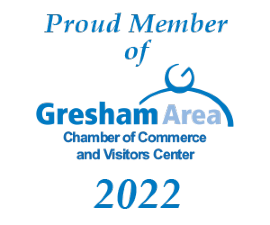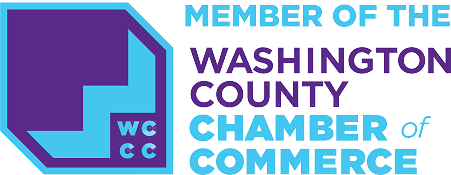Understanding Reverse Mortgages
The Power of Home Equity: Understanding Reverse Mortgages
Owning a home is often considered one of life’s greatest accomplishments. It not only provides shelter and security but is also a significant financial asset. As homeowners make mortgage payments over the years, they could build up equity in their homes, which can become a valuable resource later in life. But how can someone access this and use it as a retirement tool while still maintaining their homeownership? One way to tap into this equity is through financial tools known as reverse mortgages. There is power in home equity and reverse mortgages can help retirees and seniors leverage this valuable resource to support their financial needs.
What Is Home Equity?
Home equity is the difference between the current market value of your home and the outstanding balance on your mortgage. Ideally, when you make mortgage payments over the years, your home equity grows. Additionally, any increase in your home’s value due to appreciation in the real estate market also contributes to your equity.
Home equity can be a valuable asset because it can be converted into cash or used to secure loans for various financial needs. Many homeowners rely on their home equity to fund major expenses, such as home improvements, education, medical bills, or even retirement but traditional means of accessing this resource either require the sale of the home or a loan that requires monthly mortgage payments be made back to the lender which can stretch retirement funds even further. Home equity fluctuates with the economy so it’s important to be aware of the value of your home and take advantage of your equity when home value is high and interest rates are low.
Reverse Mortgages: Unlocking Home Equity
Reverse mortgages are a financial product specifically designed for homeowners aged 55 and older. They allow homeowners to tap into their home equity without having to sell their homes or make monthly mortgage payments. Instead, the lender makes payments to the homeowner or establishes a line of credit based on their equity, effectively converting a portion of the home’s equity into cash.
Here’s how a reverse mortgage works:
- Eligibility:
To be eligible for a reverse mortgage, you must be at least 55 years old and have a significant amount of home equity.
- Loan Types:
There are several types of reverse mortgages, but the most common one is the Home Equity Conversion Mortgage (HECM), which is insured by the Federal Housing Administration (FHA). HECM loans are regulated and have certain protections for borrowers. They are only available to people aged 62+.
- Loan Disbursement:
With a reverse mortgage, you can receive funds in various ways, such as a lump sum, monthly payments, a line of credit, or a combination of these options. The choice depends on the type of loan you choose and your financial goals.
- No Monthly Mortgage Payments:
Unlike traditional mortgages, with a reverse mortgage, you do not need to make monthly mortgage payments. Instead, the loan balance grows over time as interest accrues. The loan is typically repaid when you sell the home, move out, or pass away.
- Staying in Your Home:
One of the most significant benefits of a reverse mortgage is that you maintain the title and ownership of your home. Only upon a maturity event can the loan be called due. Read more about a reverse mortgage maturity event by checking out our FAQ page here: (link to FAQ page please)
The Benefits of a Reverse Mortgage
Reverse mortgages offer several advantages for retirees and seniors:
- Supplement Retirement Income:
A reverse mortgage can provide a valuable source of tax-free income during retirement, helping seniors cover daily living expenses, healthcare costs, and other financial needs. This income can be used as part of the coordinated withdrawal strategy of maximizing wealth in retirement.
- Flexibility:
Reverse mortgages offer flexibility in how you receive the funds, giving you the freedom to choose a payment option that suits your financial situation. Or, don’t take the funds at all! If you don’t need the funds they can sit in the line of credit and accrue over time, giving you access to more cash later in life when you may need it the most. Studies show life gets more expensive as you age.
- Tax Benefits:
The proceeds from a reverse mortgage are not considered taxable income, which can be advantageous for financial planning purposes. Want to control your AGI? Consider a reverse mortgage.
Reverse Mortgage Considerations and Caution
While reverse mortgages can be a valuable financial tool, they are not without their considerations and potential downsides:
- Costs:
Reverse mortgages come with various fees, including closing costs and mortgage insurance premiums. It’s essential to understand these costs and factor them into your decision. These costs are included in the loan balance, so they are not required to be paid out of pocket unless your loan is short to close and/or you desire to pay them out of pocket. The fees for HECM reverse mortgages are regulated and capped by the federal government.
- Loan Repayment:
While you don’t need to make monthly mortgage payments, the loan balance will increase over time due to accruing interest. This can impact the amount of equity left in your home.
- Eligibility and Counseling:
Before obtaining a reverse mortgage, you are required to attend a reverse mortgage counseling session to ensure you fully understand the terms and implications of the loan. This session is usually a phone call that takes less than an hour. There are many reverse mortgage counselors available that perform these services. They are 3rd party companies that are not affiliated with us but when you request a proposal, a list of counselors will be provided for you to call to inquire with.
Creative Reverse Mortgage Strategies
Navigating Divorce Financially: The Role of Reverse Mortgages in Divorce Settlements
Divorce is a complex and emotional process that often involves the division of assets, including the family home. In such situations, homeowners may explore innovative solutions like reverse mortgages to address financial concerns and achieve an equitable settlement. This blog delves into the role of reverse mortgages in divorce, shedding light on how this financial tool can be a strategic resource for separating couples.
1. **Equitable Asset Division:**
– The family home is often a significant asset, and deciding its fate in a divorce settlement can be challenging. Utilizing a reverse mortgage allows one spouse to access home equity while still allowing the other to maintain homeownership, promoting a more equitable division of assets.
2. **Providing Financial Flexibility:**
– Reverse mortgages offer financial flexibility by providing a lump sum, monthly payments, or a line of credit. This flexibility allows divorcing couples to tailor the use of home equity to their unique financial needs during and after the divorce process.
3. **Ensuring Housing Stability:**
– Divorce often entails significant changes in living arrangements. A reverse mortgage can help one spouse stay in the family home, ensuring housing stability without the immediate need to sell and relocate.
4. **Meeting Ongoing Financial Obligations:**
– Reverse mortgage funds can be used to meet ongoing financial obligations, such as property taxes, insurance, and maintenance costs. This can be particularly beneficial for the spouse remaining in the home, providing financial support during a challenging transition.
5. **Avoiding Forced Property Sale:**
– In many divorces, selling the home may be necessary to divide assets. However, a reverse mortgage can offer an alternative, allowing one spouse to access funds without the immediate need to sell, providing more time and potentially better market conditions.
6. **Preserving Homeownership for the Non-Borrowing Spouse:**
– When one spouse takes out a reverse mortgage, the non-borrowing spouse may continue living in the home even after the borrowing spouse passes away or moves out. This can be a crucial element in preserving stability for the family.
Divorce is a challenging chapter in life, and addressing financial concerns is a critical aspect of the process. The strategic use of a reverse mortgage in divorce settlements can provide a pathway to a more equitable asset division, financial flexibility, and housing stability. As with any financial decision, it’s essential for divorcing couples to consult with qualified professionals, including a reverse mortgage specialist and legal advisors, to explore the best solutions tailored to their unique circumstances. By leveraging the benefits of a reverse mortgage, individuals undergoing divorce can navigate the financial complexities and move forward with greater financial security.
Unlocking Investment Opportunities: Leveraging a Reverse Mortgage to Purchase Real Estate
In the dynamic realm of real estate investing, savvy individuals are exploring innovative financing options to seize valuable opportunities. One such method gaining traction is using a reverse mortgage to fund the purchase of an investment property. This blog dives into the strategic considerations and potential benefits of utilizing a reverse mortgage for real estate investment.
- Diversifying Investment Portfolios:
- Real estate is a proven asset class, and using a reverse mortgage to acquire an investment property allows individuals to diversify their investment portfolios beyond traditional options like stocks and bonds.
- Accessing Home Equity Without Monthly Payments:
- A reverse mortgage enables homeowners aged 62 and older to convert a portion of their home equity into funds without the burden of monthly mortgage payments. This liquidity can then be used to invest in income-generating properties.
- Enhancing Cash Flow:
- By leveraging a reverse mortgage, investors can enhance their cash flow by securing a property that generates rental income. The proceeds from the reverse mortgage can cover the property purchase, and rental income can potentially offset any associated mortgage costs.
- Retaining Homeownership:
- One of the key advantages is that the homeowner retains ownership of their primary residence. This allows individuals to access funds for real estate investment while still residing in their home as a primary residence.
- Preserving Retirement Savings:
- Utilizing a reverse mortgage to fund an investment property can help preserve retirement savings. Instead of tapping into traditional investment accounts, individuals can leverage home equity strategically.
- Flexible Repayment Options:
- Reverse mortgages offer flexibility in repayment. Investors can choose to repay the loan when they sell the property, ensuring that the financial burden aligns with the property’s performance and market conditions.
- Potential Tax Benefits:
- Interest payments on a reverse mortgage used for real estate investment may have potential tax advantages. Investors should consult with tax professionals to explore potential deductions and benefits.
- Mitigating Market Risks:
- Real estate values can fluctuate, but using a reverse mortgage to acquire an investment property can mitigate market risks. Investors can access home equity without selling in a potentially unfavorable market.
Unlocking investment opportunities with a reverse mortgage offers a strategic approach for individuals looking to diversify their portfolios and generate additional income through real estate. As with any financial decision, it’s crucial for investors to conduct thorough research, seek professional advice, and assess the potential risks and rewards. By leveraging the benefits of a reverse mortgage, investors can embark on a path to enhancing their financial outlook and building a robust real estate portfolio.
Breaking Free from the Debt Cycle: Using a Reverse Mortgage to Conquer Credit Card Debt
For individuals aged 55+ and burdened by credit card debt, the weight of monthly payments and high interest rates can be overwhelming. Enter the strategic use of a reverse mortgage, a financial tool that empowers homeowners aged 55 and older to tap into their home equity. A reverse mortgage can serve as a game-changer in the quest to eliminate credit card debt and achieve financial freedom.
1. **Converting Home Equity into Financial Freedom:**
– A reverse mortgage allows homeowners to convert a portion of their home equity into cash, providing a powerful resource to tackle credit card debt. This newfound liquidity can be a lifeline for those seeking to break free from the debt cycle.
2. **Eliminating High-Interest Debt:**
– Credit card debt often comes with exorbitant interest rates. By using a reverse mortgage to pay off outstanding balances, individuals can eliminate high-interest debt and redirect their financial resources toward more productive and meaningful pursuits.
3. **No Monthly Mortgage Payments:**
– One of the key advantages of a reverse mortgage is the absence of monthly mortgage payments. This provides relief for homeowners struggling with credit card debt, as they can redirect funds that would have gone toward mortgage payments to address their outstanding balances.
4. **Retaining Homeownership:**
– Utilizing a reverse mortgage to pay off credit card debt allows individuals to retain ownership of their homes. Unlike other debt consolidation methods, homeowners can access funds without selling or jeopardizing their primary residence.
5. **Flexible Payout Options:**
– Homeowners have the flexibility to choose how they receive the reverse mortgage funds – as a lump sum, monthly payments, a line of credit, or a combination. This adaptability enables them to tailor the approach to best suit their financial goals and debt repayment strategy.
6. **Reducing Financial Stress:**
– The burden of credit card debt can take a toll on mental and emotional well-being. Using a reverse mortgage to alleviate this financial stress allows individuals to regain control of their lives and focus on a more secure financial future.
7. **Preserving Retirement Assets:**
– Rather than depleting retirement savings to address credit card debt, a reverse mortgage enables individuals to tap into home equity while preserving their other valuable assets earmarked for retirement.
Breaking free from the cycle of credit card debt is a crucial step toward achieving financial stability and peace of mind. A reverse mortgage serves as a strategic solution, offering homeowners a pathway to access their home equity, eliminate high-interest debt, and regain control over their financial destiny. As with any financial decision, it’s essential for individuals to consult with qualified professionals, including reverse mortgage specialists and financial advisors, to explore the best strategy tailored to their unique circumstances. Embrace the potential of a reverse mortgage to conquer credit card debt and pave the way for a brighter, debt-free future.
Empowering Generations: How a Reverse Mortgage Can Support and Strengthen Your Family
In the pursuit of financial stability and ensuring the well-being of your loved ones, leveraging innovative solutions like a reverse mortgage can play a transformative role. This blog delves into the various ways in which a reverse mortgage can be a powerful tool to support and strengthen your family, fostering a legacy of financial security and shared prosperity.
1. **Assisting Family Members Financially:**
– A reverse mortgage allows homeowners aged 62 and older to convert a portion of their home equity into funds. This liquidity can be used to provide financial support to family members, whether it’s helping with education costs, assisting in the purchase of a home, or supporting entrepreneurial ventures.
2. **Funding Educational Expenses:**
– For many families, funding education is a significant financial commitment. A reverse mortgage can serve as a valuable resource to cover tuition fees, educational supplies, or other related expenses, ensuring that younger generations have access to quality education without adding financial strain.
3. **Contributing to Home Purchases:**
– Younger family members looking to purchase their first home can benefit from the assistance of a reverse mortgage. By providing funds for a down payment or contributing to the overall purchase, older generations can play a pivotal role in helping family members achieve homeownership.
4. **Facilitating Home Improvements:**
– Enhancing the family home can be a shared goal. A reverse mortgage can provide the necessary funds to undertake home improvements, ensuring a comfortable and safe living environment for family members of all ages.
5. **Supporting Entrepreneurial Ventures:**
– If family members are venturing into entrepreneurship, a reverse mortgage can offer financial support to kickstart or expand their business endeavors. This strategic use of home equity can contribute to the family’s economic growth and financial success.
6. **Mitigating Financial Burdens:**
– Families may face unforeseen financial challenges, such as medical expenses or debt obligations. A reverse mortgage can be strategically used to alleviate these burdens, ensuring that family members can navigate difficult times with greater financial ease.
7. **Preserving Family Assets:**
– Instead of depleting other family assets, a reverse mortgage allows homeowners to tap into their home equity while preserving other valuable resources. This ensures that assets can be passed down through generations, contributing to a lasting family legacy.
A reverse mortgage serves as more than just a financial tool – it can be a means to strengthen the bonds within your family and create a legacy of shared prosperity. As with any financial decision, it’s crucial to consult with qualified professionals, including reverse mortgage specialists and financial advisors, to tailor the approach to your family’s unique circumstances. Embrace the potential of a reverse mortgage to support and empower your family, fostering a future of financial security and unity.
Navigating Long-Term Care Costs: The Strategic Role of a Reverse Mortgage
As individuals age, the need for long-term care may become a significant consideration, accompanied by the financial challenges associated with such services. In this blog, we explore a strategic solution: using a reverse mortgage to fund long-term care. Discover how this financial tool can provide the means to ensure quality care without compromising financial stability.
1. **Long-Term Care and Financial Preparedness:**
– Long-term care, whether in-home or at a facility, can incur substantial costs. Planning for this inevitability is crucial, and a reverse mortgage can serve as a valuable resource to address the financial aspects of long-term care.
2. **Accessing Home Equity for Care Expenses:**
– A reverse mortgage allows homeowners aged 62 and older to tap into their home equity, providing a reliable source of funds to cover long-term care expenses. This strategic approach ensures that individuals can access the care they need without depleting other financial resources.
3. **Maintaining Independence and Comfort:**
– Many seniors prefer aging in place, and a reverse mortgage facilitates this choice. By using home equity to fund long-term care services at home, individuals can maintain their independence and comfort in familiar surroundings.
4. **Flexible Payout Options:**
– One of the key benefits of a reverse mortgage is the flexibility it offers in receiving funds. Whether as a lump sum, monthly payments, or a line of credit, individuals can tailor the approach to best suit their long-term care needs and financial goals.
5. **No Monthly Mortgage Payments:**
– The absence of monthly mortgage payments with a reverse mortgage is particularly advantageous for those in need of long-term care. The funds received can be allocated directly to care services without the added burden of monthly mortgage obligations.
6. **Preserving Other Retirement Assets:**
– Rather than liquidating other retirement assets to cover long-term care costs, a reverse mortgage allows individuals to preserve these resources. This ensures that other assets can be used for their intended purposes, contributing to a more comprehensive and secure retirement plan.
7. **Potential Tax Advantages:**
– The interest accrued on a reverse mortgage used for qualified medical expenses, including long-term care, may have potential tax advantages. Consultation with tax professionals can help individuals explore potential deductions and benefits.
Planning for long-term care is a critical aspect of aging gracefully and maintaining financial security. A reverse mortgage can be a strategic financial tool, providing the means to access quality long-term care without compromising other aspects of one’s financial plan. As with any significant financial decision, consulting with qualified professionals, including reverse mortgage specialists and financial advisors, is essential. Embrace the potential of a reverse mortgage to navigate long-term care costs and ensure a future of comfort, independence, and financial well-being.
The Power of a Reverse Mortgage
Home equity is a valuable resource for homeowners, especially as they enter retirement. Reverse mortgages offer a way to unlock this equity and use it to meet financial needs without having to leave your beloved home or incur any additional monthly mortgage payments. It’s crucial to carefully consider the costs, implications, and alternatives before deciding if a reverse mortgage is right for you. We can help you explore your options and make an informed decision about tapping into the power of your home equity.









